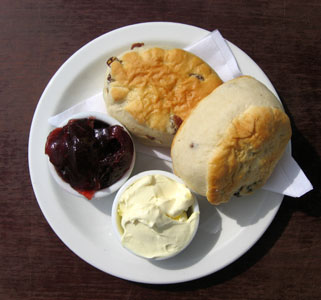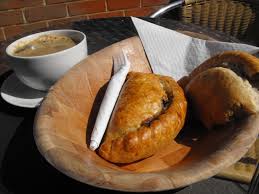Check out Underwater Photography Forum section of our forum.
What is the nail for?
Feb 27, 2016 15:45:10 #
Shirley, a blonde city girl, marries John, a Cornish dairy farmer.
One morning, on his way out to check on the cows, farmer John says to Shirley, 'The insemination man is coming over to impregnate one of
our cows today. I drove a nail into the rail above the cow's stall in the barn. You show him where the cow is when he gets here, OK?'
So then the farmer leaves for the fields.
After a while, the insemination man arrives and knocks on the front door.
Shirley takes him down to the barn.
They walk along the row of cows and when she sees the nail, she tells him,'This is the one . . . right here.'
Terribly impressed by what he seemed to think just might be another ditzy blonde, the man asks,
'Tell me, how did you know this is the cow to be bred?'
'That's simple; by the nail over its stall', Shirley explains confidently.
Then the man asks, 'What's the nail for?'
She turns and starts to walk away and again with complete confidence says over her shoulder,
'Well I assume it's for you to hang your trousers on.'
Graham\098
One morning, on his way out to check on the cows, farmer John says to Shirley, 'The insemination man is coming over to impregnate one of
our cows today. I drove a nail into the rail above the cow's stall in the barn. You show him where the cow is when he gets here, OK?'
So then the farmer leaves for the fields.
After a while, the insemination man arrives and knocks on the front door.
Shirley takes him down to the barn.
They walk along the row of cows and when she sees the nail, she tells him,'This is the one . . . right here.'
Terribly impressed by what he seemed to think just might be another ditzy blonde, the man asks,
'Tell me, how did you know this is the cow to be bred?'
'That's simple; by the nail over its stall', Shirley explains confidently.
Then the man asks, 'What's the nail for?'
She turns and starts to walk away and again with complete confidence says over her shoulder,
'Well I assume it's for you to hang your trousers on.'
Graham\098

Feb 27, 2016 16:02:50 #
Graham Thirkill wrote:
Interesting twist from what I expected. I have a cultural question for you, Graham: when you describe a person as being Cornish, does that mean the person is from Corn or Cornish County, or of Cornish heritage? Up till now, the only connotation I'm familiar with is a Cornish game hen, i.e. a breed of chicken small enough for one adult to digest in a single meal.Shirley, a blonde city girl, marries John, a Cornish dairy farmer ... Graham\098
Feb 27, 2016 16:09:45 #
Check out Panorama section of our forum.
Feb 28, 2016 01:05:26 #
lev29 wrote:
Interesting twist from what I expected. I have a cultural question for you, Graham: when you describe a person as being Cornish, does that mean the person is from Corn or Cornish County, or of Cornish heritage? Up till now, the only connotation I'm familiar with is a Cornish game hen, i.e. a breed of chicken small enough for one adult to digest in a single meal.
A "Cornish" person comes from Cornwall, an English County,
Cornwall is a peninsula bordered to the north and west by the Celtic Sea, to the south by the English Channel, and to the east by the county of Devon, over the River Tamar. Cornwall has a population of 536,000 and covers an area of 3,563 km2 (1,376 sq mi).
Hope this explains, thanks for comments and viewing
Graham\098/

Feb 28, 2016 01:16:21 #
catfish252
wrote
It's being from Cornwall in the southwest of England
-----------
Thanks for viewing
Graham\098\
wrote
It's being from Cornwall in the southwest of England
-----------
Thanks for viewing
Graham\098\
Feb 28, 2016 07:34:00 #
Feb 28, 2016 08:45:57 #
Check out True Macro-Photography Forum section of our forum.
Feb 28, 2016 09:07:50 #
Good one--I love the look on the cow's face. Perhaps that says it all.
Feb 28, 2016 11:38:40 #
Graham Thirkill wrote:
Thanks for the edification, Graham! I liked the map!A "Cornish" person comes from Cornwall, an English County. Cornwall is a peninsula ... Hope this explains, thanks for comments and viewing ...
Feb 28, 2016 13:44:12 #
Feb 28, 2016 14:18:36 #
Graham Thirkill wrote:
One more question. Did or does being Cornish bestow upon the individual any sort of reputed trait or stereotype?... It's being from Cornwall in the southwest of England ...
Check out Underwater Photography Forum section of our forum.
Feb 28, 2016 14:45:28 #
lev29 wrote:
One more question. Did or does being Cornish bestow upon the individual any sort of reputed trait or stereotype?
---------
I have to be very careful here, because I'm a Yorkshire-man. Yorkshire is the County of my birth and so very, very proud of the fact. There are a few Good, Sound Yorkshire folks on this forum, bless their hearts. Some Cornish people claim they are not part of England and some don't want to be part of England, but obviously they are, and always will be and Cornwall is just another English County same as any other English County.
Read the following, it may make you smile and is written by a Cornish man with tongue in cheek.
"Kernow agas dynnergh, proclaims the sign on the down platform at Saltash station: Welcome to Cornwall. Its a message that lifts my spirits every time I take the train over Brunels great Tamar bridge. Im home: goodbye England, hello Cornwall.
The announcement by Danny Alexander, Chief Secretary to the Treasury, that the Cornish are to be recognised as a national minority gives us parity with the Welsh, Irish and Scots. Some will interpret it as little more than window dressing a late attempt to shore up the Liberal Democrat vote in a region that Ukip have found fertile.
The leader of Cornwall council accepts that our new status wont bring any immediate financial or political benefits. But it is still a reason for great celebration: finally, Westminster has accepted that Cornwall is more than just another English county. Once we were a proudly independent trading nation, with our own language and royal line. Accounts of our history may have been clouded by romantic Arthurian legend, but Cornwall remains in many ways a foreign place, an untamed land projecting out into the Atlantic, with people, customs and language very different to those further north.
Abroad, when I explain where I am from, the inevitable response is: So you are English. No, I reply, Cornish. Ill accept British, or European, but being described as English is something that rankles with most Cornishmen.
We are intensely proud of who we are, and where we come from. We revere the natural beauty of our land: the patchwork of fields of West Penwith; the gentle coves of The Lizard; sprawling, misty Bodmin Moor. We revel in our unique traditions: Flora Day in Helston; Mazey Day in Penzance; the Obby Oss parade in Padstow, a survivor of Celtic worship rituals. And we celebrate our distinguished antecedents: Michael An Gof, the St Keverne blacksmith and political rebel hung, drawn and quartered at Tyburn; Bishop Trelawny, incarcerated in the Tower of London for sedition and immortalised in the Cornish anthem that bears his name; the great inventors Richard Trevithick, Humphrey Davy and Henry Trengrouse, whose lives reflect a rich industrial past.
But glorious though our history is, this move is more about the future. When I was a child I earned pocket money cleaning a holiday cottage that my grandparents owned. The season was short, visitors arriving for simple holidays featuring Thermos flasks, ham sandwiches and the occasional cream tea provided by the local farmers wife. Now, Cornwall is a world-class tourist destination, with Michelin-starred restaurants, luxury hotels and champagne flutes as standard in todays holiday lets. In pretty villages filled with weekenders cottages, the shops stock fresh pesto and organic brioche. Any remaining fishermen do a swift trade in lobster and picked crab meat.
The glamming-up of the tourist market has undoubtedly brought an injection of cash, but it cant disguise the poverty that still exists south of the Tamar. Cornwall has the weakest economy in the country in the latest government league tables it slipped below the South Wales valleys.
Yet, gradually, signs of change are appearing. High-speed broadband means Cornwall is now one of the best connected areas in Britain, encouraging media and design companies to relocate. The former RAF base at St Mawgan near Newquay has been relaunched as Aerohub, offering financial incentives and simplified planning rules for companies who locate there. A new interest in high quality meat, seafood, cheeses and vegetables has helped the agricultural and fishing sector. Frugi, a childrens clothes maker in Helston employing 50, has just won a Queens Award for Enterprise; Seasalt, another fashion company with 200 staff in Falmouth, picked up the same award last year.
Giving Cornwall and its people a real sense of identity can only help this ongoing development. Offered the choice between the increasingly random concept of the United Kingdom, or a progressive micro-region with a motivated, enthusiastic workforce, its clear what most investors will plump for. And lets not shy away from raw emotion. Ireland has secured billions of dollars by persuading Irish-Americans to invest in the old country. Scotland and Wales have followed them. Why not Cornwall next?
In the 19th century, Cornwall was one of Britains great exporting regions, sending miners and machinery around the world; today, in America alone, two million claim Cornish descent. Reinforcing a sense of pride in being Cornish can only help when it comes to banging the collecting bucket.
Danny Alexanders announcement looks like a goodwill gesture, unlikely to fan the flames of the minuscule Cornish independence movement. We are not now on the path to Cornish passports, nor indeed any form of devolution. But it is welcome none the less, for commercial reasons, and for the sense of fresh pride that will be enjoyed by hundreds of thousands of Cornish, at home and abroad. Kernow bys Vyken, Cornwall for Ever. Or to use a popular Cornish phrase, proper job.
Bet you enjoyed that, I am pleased to be of service being a sound Yorkshireman and I am sure it answered all your interesting queries and questions.
I bet it did make you smile.
----------------------------------
Cornish Pasty Recipe (Based on a large Pasty)
If you fancy making your own homemade Cornish Pasties, here is my pasty recipe & method to follow. If you need any more help dont hesitate to give me call.
Making the Pastry
Pasty pastry, for four eight-inch pasties.
450g 1lb strong white flour (large pinch salt optional)
100g 4oz margarine (Echo or similar hard variety)
110g 4oz lard
175ml 1/3pt water
Put the flour and salt (if used) into a bowl. Cut off a quarter of the lard and rub into flour. Grate or slice the rest of the fats into the mixture and stir with a knife. Pour all the water in and stir until absorbed. Knead a little and leave at least 30 minutes in the fridge before using.
Pastry can be made the day before, wrapped in polythene and stored in the fridge overnight. Pastry freezes well, but remember to take it out the night before you need it. Do not refreeze.
Wholemeal pastry
This is preferred by some people, especially for vegetable pasties. Use vegetarian fats instead if you prefer.
225g 1/2lb wholemeal flour
225g 1/2lb strong white flour
100g 4oz Echo margarine or butter
100g 4oz lard or Cookeen (salt optional)
175ml 1/3pt water to mix
Roughly chop the fats into the flour. Rub in very lightly; pour in and stir into a ball. Knead for half a minute and rest the pastry for at least half an hour.
Pasty filling, quantity for one pasty.
50g 2oz onion or shallot (some people like leek)
50-75g 2-3oz turnip (swede)
85-115g 3-4oz beef skirt or chuck steak
150g 6oz sliced potatoes
black pepper, salt
Making the pasties
Keep the sliced potatoes in a basin of cold water till needed. Trim and gristle off the meat and cut it (with some fat) into 6 mm (1/4 in) pieces.
Generously flour the board or area you are using. This allows the pastry to relax as you roll, especially if you flip the pastry up from the surface every now and then. Cut off a quarter of the prepared pastry. Roll it out, keeping the shape, into a circle 21-23 cm (8-9 in) across. The pastry should now be the right thickness. Place an upturned plate over the pastry and trim round to get a good shape.
Place most of the turnip and onion across the centre of the round. Sprinkle lightly with salt and pepper to taste.
Place meat along the top and well into the ends; season the meat with a little salt. Top the meat with most of the potato and the remainder of the turnip.
Sprinkle again with a little salt, and add the remaining potato. Do not season the top layer: salt directly in contact with pastry can make it taste slightly bitter.
Dampen one side of the pastry with a little water. If you dampen the pastry all round or use too much water you will find the edges slide instead of sealing, so dont slosh it on.
Fold the damp side of the pastry to the other and press firmly but gently together, so that you have a seam down across the pastry, or by the side, whichever you find easier. From the right side if you are right-handed (or the left if you are left-handed) fold over the corner and crimp by folding the pastry seam over and over to the end. Tuck in the end well to seal. Alternatively, if you find this difficult, just curl the edge like a wave.
Make a small slit in the top with a knife and patch any other breaks or holes with a little dampened rolled-out pastry.
Brush the pasties with milk or egg wash or even just water and place them on buttered paper or a greased and floured tray, leaving 5 cm (2 in) between them.
Bake in a hot oven 220C (425F, gas 7) for 20 to 30 minutes. Check the pasties. If brown, turn them down to 160C (325F, gas 3). Bake for another 20 minutes. Turn off the oven and leave them in the oven for another 15 minutes with the door shut.
Remove from the oven and with a slice lift the pasty onto a plate. Cut in half, allowing some of the steam to escape.
If you are eating them picnic style, place the pasties onto a cooling tray and wait 15 minutes before eating. If you want to eat them an hour or so later, or are taking them on a journey, wrap them straight from the oven in paper and then a clean cloth. Pasties keep extremely hot for a long time and if well wrapped a pasty made in Helston would still be hot when you reached Exeter. Ive even been told by holiday-makers that their pasties were still reasonably warm when they reached London.
Cheers and Beers
Graham\098/
Cornish Cream Tea

Cornish Pastie

Feb 28, 2016 23:26:22 #
Tnx for the Cornwall post. I have made two trips there, and thoroughly enjoyed them.
Bill
Bill
Mar 1, 2016 11:17:09 #
If you want to reply, then register here. Registration is free and your account is created instantly, so you can post right away.






